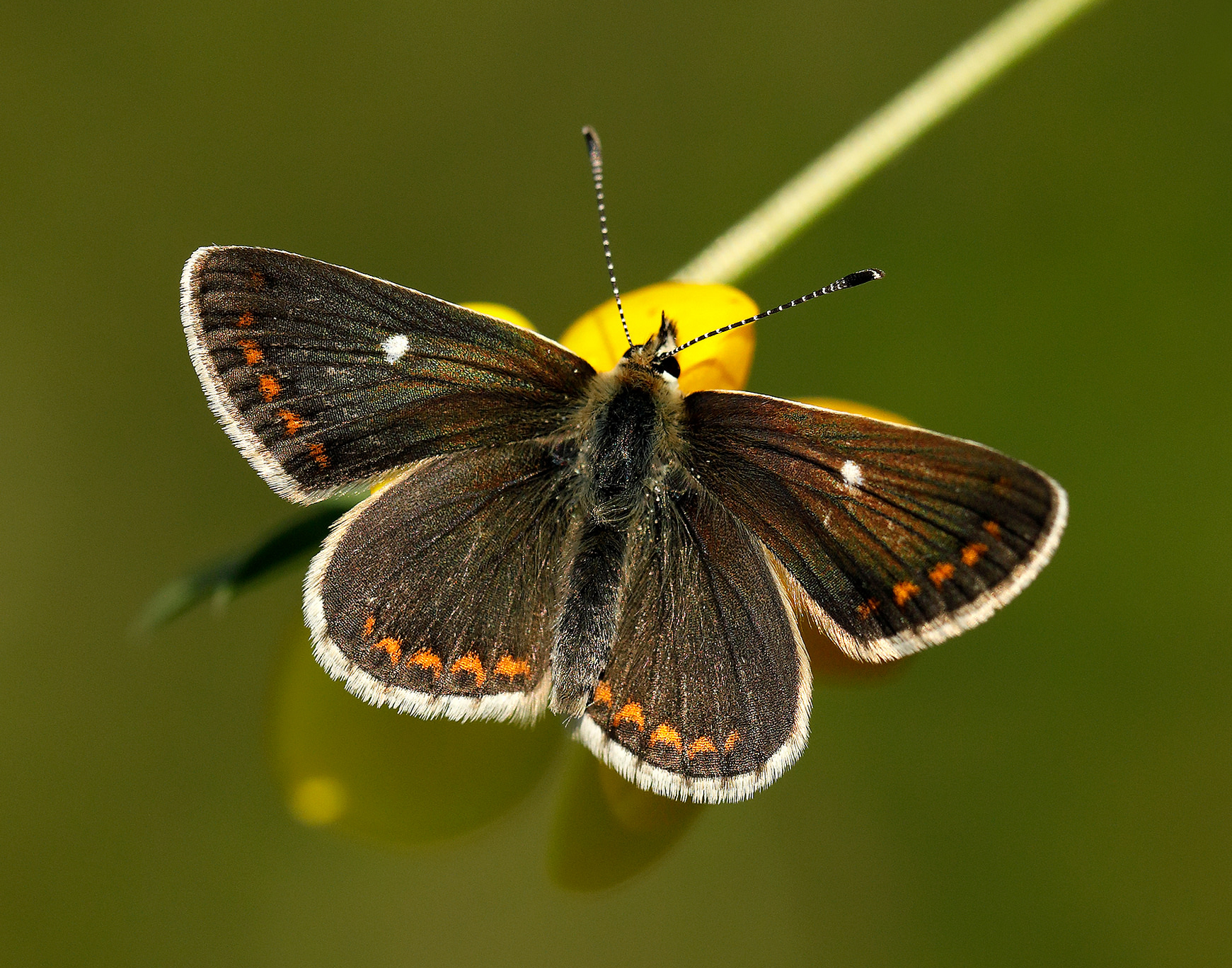A once locally-extinct butterfly has made a remarkable return to Stirlingshire after a 100 year absence, Butterfly Conservation and The Future Forest Company reveal today.
The Northern Brown Argus was once found in abundance throughout the Ochill Hills, but due to habitat loss including overgrazing, was believed extinct in Stirlingshire and across much of its former range.
Very few colonies remain, with small numbers clinging on at Alva Glen in Clackmannanshire, living on steep crags where sheep cannot graze the food plants required by their caterpillars too heavily.
However, in a remarkable discovery, a volunteer from Butterfly Conservation found Northern Brown Argus in her garden in Blairlogie, just inside the Stirlingshire border, after planting Common rock-rose, the only plant eaten by Northern Brown Argus caterpillars.
This sparked hope for the once locally-extinct species. Staff and volunteers from Butterfly Conservation and The Future Forest Company conducted a series of searches on the hillside at the award-winning Dumyat Estate in Blairlogie, discovering a few small colonies of the butterfly on the steep hills.
In another exciting turn of events, the Northern Brown Argus is now confirmed to be breeding at the site, which is owned by The Future Forest Company, giving hope for the return of this species across its former habitat.
David Hill, Conservation Manager at Butterfly Conservation, said: “This is a once-in-a-lifetime event, the re-emergence of a previously locally-extinct species in its former habitat is incredibly special and rare. We’re committed to protecting the Northern Brown Argus and helping it to thrive, with hopes that it will spread across its former home and stretch right across the Ochill Hills once again.”
Lindsay Mackinlay, The Future Forest Company’s Head of Biodiversity, explained: “We are delighted that this rare butterfly can once again be spotted on the hills below Dumyat. We hope to work in partnership with Butterfly Conservation to monitor its numbers in the coming years.
“With the help of volunteers, The Future Forest Company is starting to clear the invasive scrub that is threatening the Common rock-rose plants which this beautiful butterfly depends on, however, more conservation work is required to ensure the long-term survival of this species at Dumyat. We have a biodiversity crisis on our hands and everyone can play a part in reversing this, including the private sector. That’s why we are inviting any company that wants to help ensure a future for wildlife at Dumyat, or through our other exciting projects, to get in touch and help transform our landscapes into wildlife havens for local people."
The State of the UK's Butterflies 2022 Report, published by Butterfly Conservation, revealed that Northern Brown Argus suffered a 58% decline in abundance between 1979 and 2019, and a 43% decline in distribution during the same time period. The species is mostly found across Scotland and requires short grassland managed by light-grazing to thrive, however, much of its former habitat has been lost to overgrazing, lack of grazing or encroachment of scrub and woodland.
Butterfly Conservation and The Future Forest Company are working together to protect the fragile colonies and extend the range of this enduring butterfly by planting more Common rock-rose for its caterpillars to feed on and creating more habitats for it to thrive.


